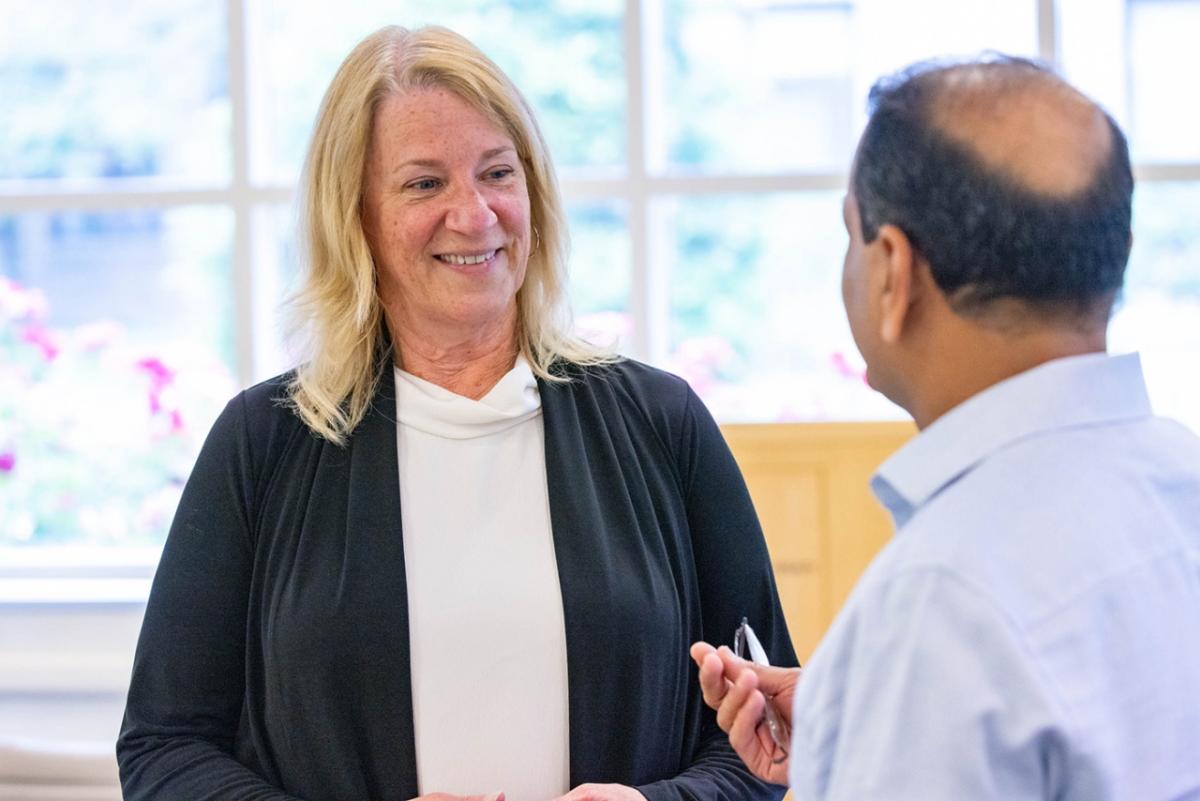Keep the Wheels Turning
By Karin Shanahan, Executive Vice President, Global Product Development and Supply

Originally published on Bristol Myers Squibb News & Perspectives
At Bristol Myers Squibb, Global Patient Week stands as a pinnacle of our year-round vision to transform patients’ lives through science, bringing together our more than 32,000 employees around the world to celebrate the individuals we work each day to serve. This year, in collaboration with the patient advocacy groups we partner with, we asked a few of our Leadership Team members to share their perspectives on how the work their teams are leading impacts lives around the world.
Let’s face it: On the whole, research and development of medicines are pretty well understood. Scientists are conducting experiments in a laboratory. Pretty straightforward, right? But manufacturing those medicines — and delivering them to the patients who need them – is much less well understood. The engine that drives us toward the finish line is behind the scenes. They keep the wheels turning. Our manufacturing specialists all too often go unsung.
As a longtime biopharma professional, I know this full well. I started my career in the industry at Bristol Myers Squibb in 1996. I then took on positions at other firms, before returning home to the company earlier this year. Over the decades, I’ve sought to cultivate expertise in quality, compliance, strategic planning, manufacturing and supply chain operations. In the process, I’ve also attempted to forge a specialty in leadership. Chiefly, I’ve concentrated on bringing together people in our organization from across disciplines to build high-performance teams. Ideally those teams achieve state-of-the-art manufacturing and maintain the highest logistical standards. They’re also marshaled to pursue common goals, none more important than serving patients. Toward this end, the scientists and engineers within our manufacturing operation collaborate closely with the clients carrying out research and development. That linking takes a lot of ingenuity.
Today my role as Executive Vice President of Global Product Development and Supply is to oversee worldwide product development, manufacturing and the end-to-end supply chain for biologics, small molecules and cell therapy at Bristol Myers Squibb. I lead a global team of 9,500-plus across more than 20 sites. It’s a role of immense dimension and intricate complexity. It entails developing and producing active ingredients and drug products and then the monumental challenge of delivering our medicines throughout the world.
In essence, my team’s mandate is to turn molecules into medicines, raw materials into finished products. That involves an array of activities, whether scaling up drugs discovered and developed by Research & Development, developing novel manufacturing processes, ordering enough raw ingredients to meet current production demands, releasing products that meet our stringent quality standards or shipping our finished products to distribution centers – and then, ultimately, on to patients.
At every step, you can be sure, challenges abound. On any given day, anything along the supply chain can be disrupted. Any number of problems can happen. Workers call in sick. Roofs leak. Equipment fails.
And believe me, the last few years showed our industry interruptions aplenty. It took uncertainty and unpredictability to new levels. But the pandemic also forced us to be more innovative than ever. We had to get creative. Early on, technicians would go around our plant floors troubleshooting with nothing but cell phones to take pictures and videos to show engineers and other colleagues what was happening. We quickly leveraged technology that was already available but never deployed. Eventually our engineers were equipped, for example, with Google Glasses. At issue, too, was how best to respond to shortages of ingredients and components essential for medicines. Toward this end, I helped negotiate with the FDA to adopt emergency protocols to use alternate materials believed equally safe and effective.
Despite ongoing challenges, our metrics for performance in manufacturing and logistics are strong. Come what may, we work hard to ensure we meet the needs of our patients. The rate of success for customer service, currently hovers at 95% — good, but we always strive for 100% and still plan to restore our usual 97% to 98%.
My teams and I take our jobs personally. It’s easy to get caught up in day-to-day issues. But we all wake up every morning knowing that everything we do here has a ripple effect on patients, families, friends and even whole communities. What we do here is important. The medicines we manufacture and deliver improve quality of life and save lives.
That same motivation drives me as much as anyone else. My mother-in-law died of cancer, and I know the medicines we have today would have made a difference in her life – and those of others, too.
So believe me, we’re going to do what we’ve always done for patients. No matter what happens – even a pandemic – we’re going to get where we have to go.

